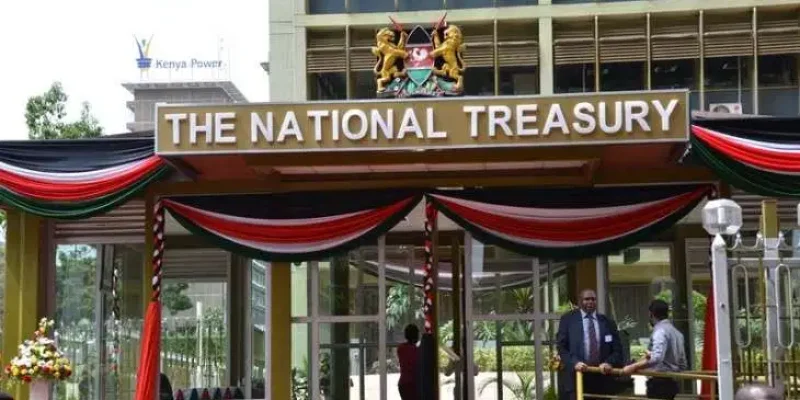Treasury unveils major reforms in public finance system

The National Treasury is set to kick off a comprehensive series of fiscal reforms beginning July 2025, anchored on the Treasury Single Account (TSA) system.
The National Treasury is set to kick off a comprehensive series of fiscal reforms beginning July 2025, anchored on the Treasury Single Account (TSA) system.
This initiative marks a significant shift in the management of public funds, with the goal of strengthening financial oversight, boosting transparency, and streamlining service delivery across all government tiers.
Treasury Principal Secretary Dr. Chris Kiptoo made the announcement during a high-level meeting convened at the Treasury headquarters on Friday, May 30, 2025.
Senior officials from the country’s top fiscal bodies convened for a high-level meeting, among them Deputy Central Bank Governor Susan Koech, Controller of Budget Dr. Margaret Nyakang’o, Auditor General Nancy Gathungu, and delegates from the Kenya Revenue Authority and the Office of the Auditor General.
Treasury PS Chris Kiptoo emphasized the significance of the initiatives, calling them “a vital pillar in the broader agenda to reform public financial management.”
“These changes come at a crucial time,” Kiptoo noted. “They promise to enhance fiscal discipline, strengthen oversight mechanisms, and ultimately boost efficiency and value in public service delivery.”
One of the standout elements of the revamped Treasury Single Account (TSA) framework is the launch of Invoice Twinning a system that directly links supplier invoices to exchequer disbursements.
This mechanism is intended to curb irregular payment voiding and selective fund releases, long-standing problems in public procurement.
Officials say the initiative will eventually be rolled out to county governments once their exchequer systems are fully automated.
Another significant reform targets the government’s overdraft management. By enhancing cash flow forecasting and cutting the cost of short-term borrowing, the measure aims to reduce the fiscal strain caused by past inefficiencies in borrowing.
The Treasury is also moving toward a Just-In-Time disbursement model, which will match fund releases to verified payment requirements.
This approach is designed to eliminate dormant balances in government accounts and improve resource utilization.
To boost financial discipline and transparency, the reforms will also enhance oversight of State-Owned Enterprises (SOEs) by providing clearer visibility of their cash positions.
Treasury officials maintain that real-time cash data will help seal fiscal loopholes and strengthen planning across public institutions.
The TSA initiative further includes the full automation of both domestic and external public debt payments.
The new system features streamlined approvals, integrated payment workflows, and improved reconciliation processes.
“These changes will promote greater accuracy, timely execution, and long-term efficiency in debt management,” Kiptoo said, stressing the urgency of addressing payment delays and errors in light of the country’s rising debt burden.
To facilitate the rollout of these reforms, the Central Bank of Kenya (CBK) is in the process of upgrading its T24 Core Banking System to Version R23.
This upgrade is expected to modernize the bank’s internal processes, enhance system scalability, and strengthen the security framework for government financial operations.
According to CBK, the move is essential to ensure that the technological infrastructure underpinning Kenya’s public finance system can support the increasing complexity and integration of fiscal operations.
The Treasury Single Account (TSA) model is globally acknowledged as a benchmark for effective public financial management.
By centralizing government cash resources within a single framework, it minimizes fragmentation and enhances financial oversight.
Officials at the meeting noted that this harmonized approach aligns with the government’s overarching goal of promoting fiscal responsibility, transparency, and rebuilding public trust in the financial system.
"This is fundamentally about reinforcing public financial governance and earning the confidence of citizens," Kiptoo stated.
